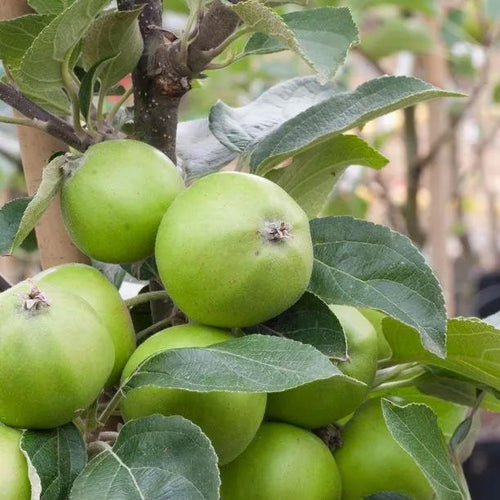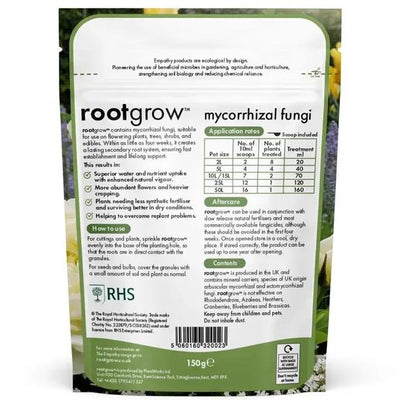Michelin Cider Apple Trees
'Michelin Cider' although classed as medium bitter-sweet, the small, green apples actually taste surprisingly sweet but still possess the astringency of an apple with lots of tannin. Its juice is aromatic, dark and very plentiful because the apples are incredibly juicy.
It bears lots of fruit on upright branches, meaning that you will always have room to squeeze in a Michelin. Even better, the fruit drop when ripe so no ladders or harvesting paraphernalia is required; remember that the sooner you juice the apples once picked, the better.
Browse our range of apple trees or the full variety of fruit trees.
Growing Michelin
You wouldn't want to make a cider purely from Michelin, but it's a great apple to put into the mix. Bearing in mind the traditional ratio of a third each of sweet, bittersweet and sharp cider apples to make a cider, you can now have some fun choosing which sweet and sharp apple trees to combine with Michelin. We can recommend Frederick as a suitable sharp apple because it's in the same pollinating group and crops at the same time as Michelin. For the same reasons, another bittersweet variety would be good.
Features
- Height: bushes to 3m. Half standards to 4.5m
- Use: Cider. Very juicy medium bittersweet.
- Pruning: Spur bearer
- Pollination: Partially self fertile
- Picking: October-November
- Apple colour: Green
- Pollination Group D
Have a look at our quick guide if you are new to brewing cider at home.

 Secure, One-Tap Checkout
Secure, One-Tap Checkout
 Hand Picked, Delivered to Your Door!
Hand Picked, Delivered to Your Door! 1 Year Bareroot Guarantee
1 Year Bareroot Guarantee










